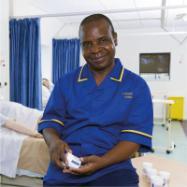The University of Wolverhampton has a long and proud history of working with teachers and practitioners at all levels of education both nationally and internationally. All our departments are highly rated for their provision, and proud to be known for their employable graduates with excellent long-term prospects. The MA in Education, at the University of Wolverhampton, is therefore designed to provide an excellent opportunity to develop career and employability skills.
Within the School of Education, we deliver in partnership with schools, the Early Career Framework and National Professional Qualifications and have aligned our MA modules to meet the needs of early career teachers, established teachers, and mentors. We provide high-quality learning experiences in a supportive and inclusive environment, allowing you to customise your learning experience through flexible and varied assessment approaches and module options. Our MA in Education programme has been designed to provide you with the opportunity to develop your skills, knowledge and understanding, applying what you learn to your current or future role, responsibilities, or career aspirations.
A key aspect of this course is flexibility to suit your needs, with a hybrid model of online modules and modules that are taught on campus.
Education is an ever-changing area of study. At the University of Wolverhampton, your teaching team are well qualified and experienced tutors with practitioner expertise and research in the field of Education. They are constantly developing different approaches to learning and teaching, with varied and challenging assessment methods and ongoing curriculum development and innovation. Your teaching staff at the University of Wolverhampton are active researchers and these interests contribute to high quality teaching and learning that you will experience.
We welcome international students from a range of countries such as Nigeria, Sri Lanka, Nepal, India, and China. We offer an extended induction programme, the opportunity to engage with UK educational processes, and enable critical thinking through supportive writing workshops. As an international student, you will also have an academic coach who will support your transition into university and meet with you regularly to support your studies, as well as academic mentoring and coaching support. As the university of opportunity, we reflect the diversity and cultural backgrounds of our students, and the MA in Education offers a globally diverse curriculum. International students can find out more information about studying at the University of Wolverhampton by visiting our International webpage.
For those students with previous study at Level 7, such as a Postgraduate Certificate in Education (PGCE), Post Graduate Certificate (PGCert), or CPD at level 7, there is the opportunity to apply for recognition of prior certificated learning that can contribute up to 100 credits towards your MA.
The library will provide you with academic skills support via the Skills for Learning programme . You can attend workshops online or ask for one-to-one help on a range of skills such as academic writing and referencing. 1:1 online Skills appointments are also available.
The University Student Support website offers advice on a variety of matters (careers, counselling, mental health and well-being and student union (SU) advice) You can also access these services by booking appointment with the SU, careers, counselling services, etc.
Course Specific Support
- You will be allocated a Personal Tutor, academic mentor, or academic coach for International Students
- Specific assessment support will be factored into each module.
- Transitional Workshops for International Students
- If you have disabilities and/or specific learning difficulties, you can gain a wide range of support from Student Support and Well Being team at the university.
- Higher Education level 7 academic skills are embedded throughout the curriculum.


/prod01/wlvacuk/media/departments/digital-content-and-communications/images-18-19/iStock-163641275.jpg)
/prod01/wlvacuk/media/departments/digital-content-and-communications/images-2024/250630-SciFest-1-group-photo-resized-800x450.png)
/prod01/wlvacuk/media/departments/digital-content-and-communications/images-18-19/210818-Iza-and-Mattia-Resized.jpg)
/prod01/wlvacuk/media/departments/digital-content-and-communications/images/Maria-Serria-(teaser-image).jpg)
/prod01/wlvacuk/media/departments/digital-content-and-communications/images-2024/241014-Cyber4ME-Project-Resized.jpg)
/prod01/wlvacuk/media/departments/digital-content-and-communications/images-18-19/210705-bric_LAND_ATTIC_v2_resized.jpg)


